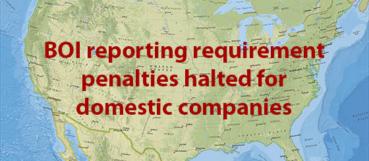6 essential tips for small business payroll tax compliance

Staying compliant with payroll tax laws is crucial for small businesses. Mistakes can lead to fines, strained employee relationships and even legal consequences. Below are six quick tips to help you stay on track.
1. Maintain organized records
Accurate recordkeeping is the backbone of payroll tax compliance. Track the hours worked, wages paid and all taxes withheld. Organizing your documentation makes it easier to verify that you’re withholding and remitting the correct amounts. If you ever face an IRS or state tax inquiry, having clear, detailed records will save time and reduce stress.
2. Understand federal withholding
- Federal income tax. Employees complete Form W-4 so you can determine how much federal income tax to withhold. The amounts can be calculated using IRS tax tables.
- FICA taxes (Social Security and Medicare). Your business is responsible for withholding a set percentage from each employee’s wages for Social Security and Medicare, and you must match that amount as an employer. The current tax rate for Social Security is 6.2% for the employer and 6.2% for the employee (12.4% total). Taxpayers only pay Social Security tax up to a wage base limit. For 2025, the wage base limit is $176,100. The current rate for Medicare tax is 1.45% for the employer and 1.45% for the employee (2.9% total). There’s no wage base limit for Medicare tax. All wages are subject to it.
3. Don’t overlook employer contributions
Depending on your state and industry, you may need to contribute additional taxes beyond those withheld from employee paychecks.
- Federal Unemployment Tax Act (FUTA) tax. Employers pay FUTA tax to fund unemployment benefits.
- State unemployment insurance. Requirements vary by state, so consult your state’s labor department for details. You can also find more resources at the U.S. Department of Labor.
4. Adhere to filing and deposit deadlines
- Deposit schedules. Your deposit frequency for federal taxes (monthly or semi-weekly) depends on the total amount of taxes withheld. Missing a deadline can lead to penalties and interest charges.
- Quarterly and annual filings. You must submit forms like the 941 (filed quarterly) and the 940 (filed annually for FUTA tax) on time, with any tax due.
Under the Trust Fund Recovery Penalty, a “responsible person” who willfully fails to withhold or deposit employment taxes can be held personally liable for a steep penalty. The penalty is equal to the full amount of the unpaid trust fund tax, plus interest. For this purpose, a responsible person can be an owner, officer, partner or employee with authority over the funds of the business.
5. Stay current with regulatory changes
Tax laws are never static. The IRS and state agencies update requirements frequently, and new legislation can introduce additional obligations. A proactive approach helps you adjust payroll systems or processes in anticipation of changes, rather than scrambling at the last minute.
6. Seek professional advice
No matter how meticulous your business is, payroll taxes can be complex. We can provide guidance specific to your industry and location. We can help you select the right payroll system, calculate employee tax withholding, navigate multi-state filing requirements and more. In short, we can help ensure that every aspect of your payroll is set up correctly.
© 2025





